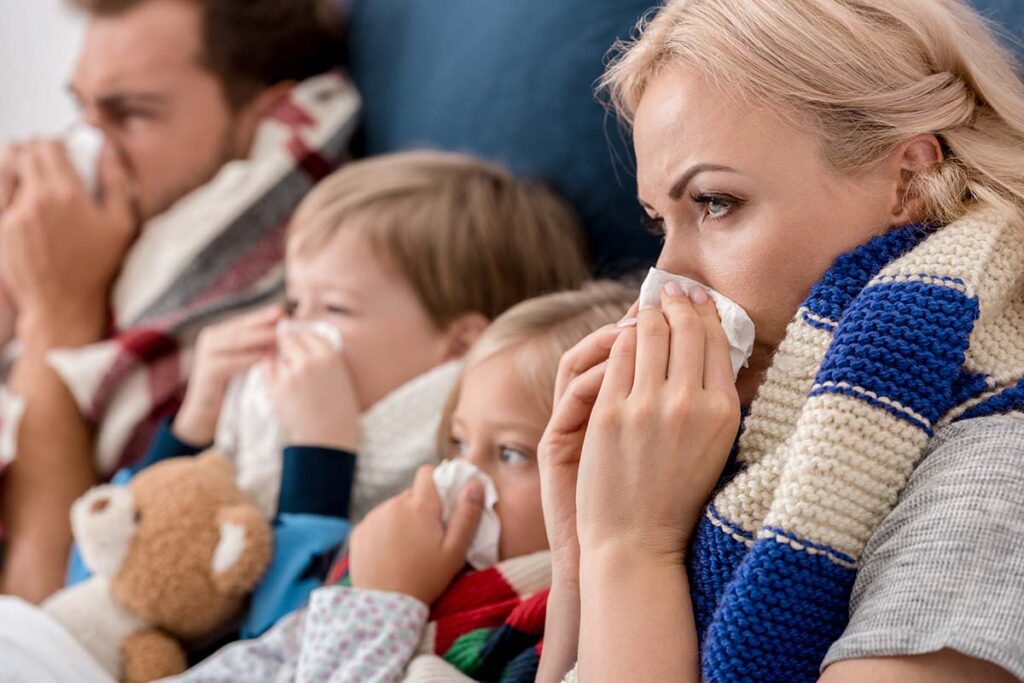COVID-19 has dominated our health concerns over the past year. Yet as we dealt with the pandemic, we witnessed a decline in case numbers of common viruses such as the cold virus, the flu virus and respiratory syncytial virus (RSV). It’s thought that the measures we took to protect ourselves against COVID-19 such as masking and social distancing, also kept the other viruses at bay. But as we begin to open things up, that may be about to change. Experts fear that the coming cold and flu season will be much worse than usual.
Things you can do to keep yourself and your family safe
There are a few steps that you can take before, during and possibly after catching the flu to help limit its impact on yourself and others.
- Know what signs and symptoms to be on the lookout for (see below).
- Get your flu vaccine when it’s time. Do not wait. The annual flu shot is for almost everyone over the age of 6 months.
- Continue to practice good hand hygiene.
- If you are sick, stay at home and away from places like work or school to limit its spread.
Cold and flu symptoms
The cold and flu share many common symptoms. This includes
- Cough
- Sore throat
- Fatigue
- Runny nose
- Fever – you usually do not get a fever with a cold. If you do, it may be a sign that you have the flu. Furthermore, the flu is generally more severe than a cold with full body aches and tiredness being present.
When to see a healthcare provider
The vast majority of colds and flus can be dealt with at home with a combination of rest, fluids and over the counter medications. However, if you experience symptoms like shortness of breath, a temperature that does not go away or a persistent cough, then make an appointment to see your doctor or visit your local urgent care provider.
Children and RSV
Respiratory syncytial virus (RSV), is a common cold-like virus that primarily affects children. Doctors believe that this virus will be especially problematic as schools and day cares open up. In fact, authorities in Hong Kong and Australia have reported huge surges of children being infected with RSV after schools re-opened.
Symptoms of RSV in children
- Runny nose
- Fever
- Cough
When to make an appointment to see your child’s doctor
As with most situations where children get a cold, keep them at home from school and focus on rest and fluids. Viruses cannot be treated with antibiotics. Therefore the treatment is just to manage and ease symptoms. However, if any of the following are experienced then make an appointment to see your child’s doctor.
- Trouble eating, drinking, or swallowing.
- Fever (temperature of 100.4 or higher) that does not go away.
- Difficulty breathing.
- Symptoms that don’t get better, or get worse.
If one or more of these symptoms appear then make an appointment to speak to your child’s doctor. RSV is an extremely common virus but there are some children that experience severe symptoms. These should be dealt with by a doctor.
